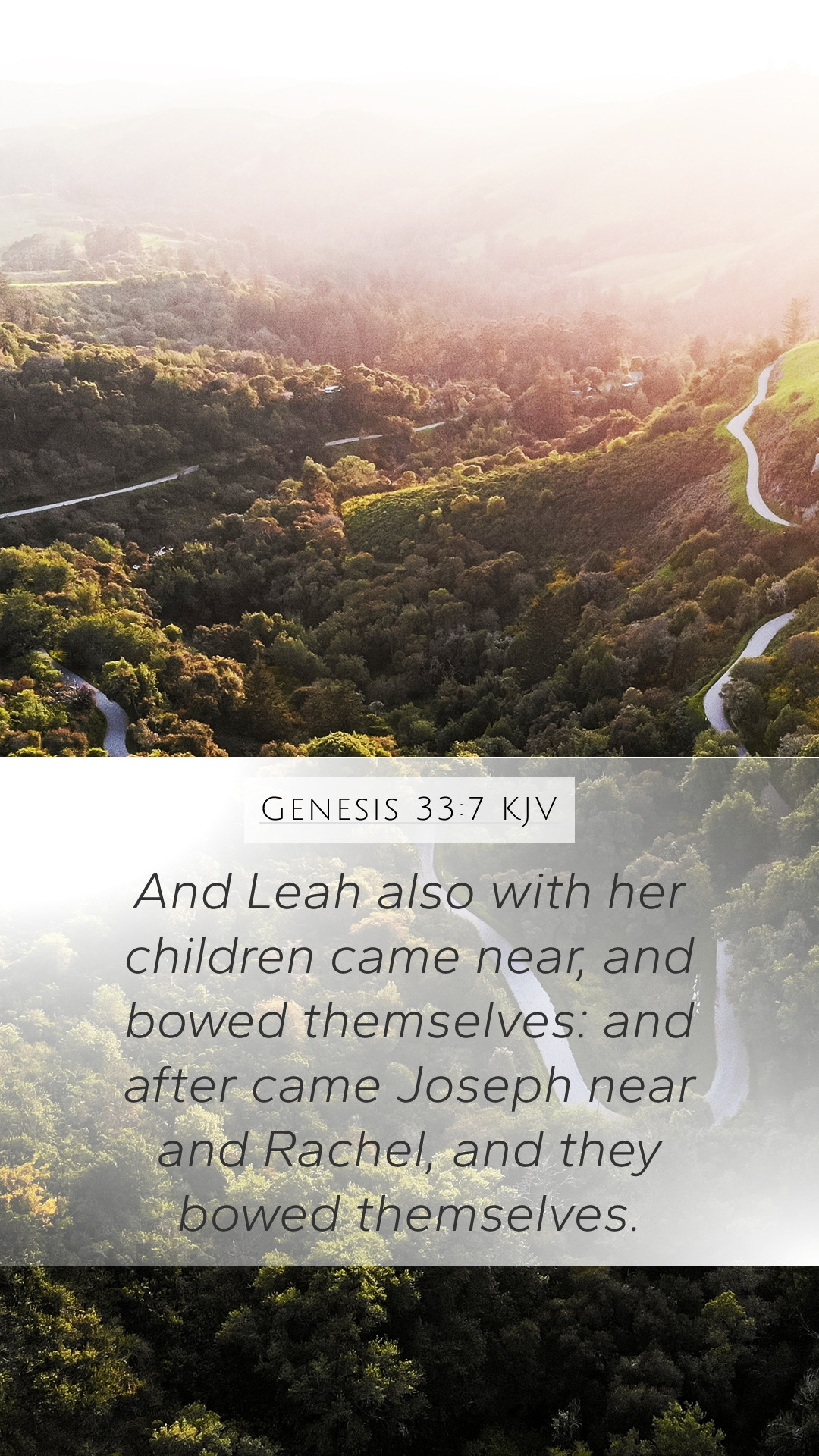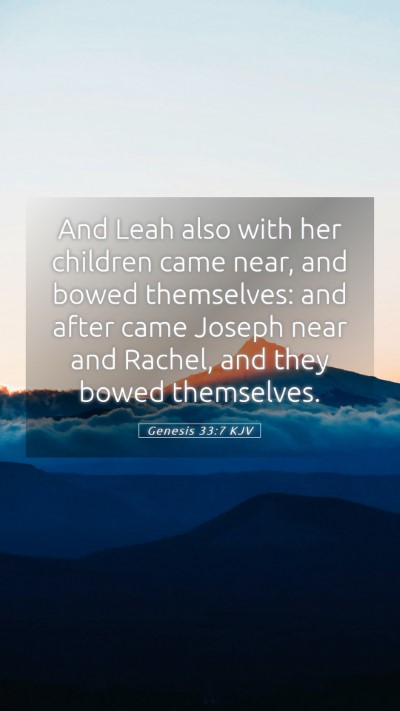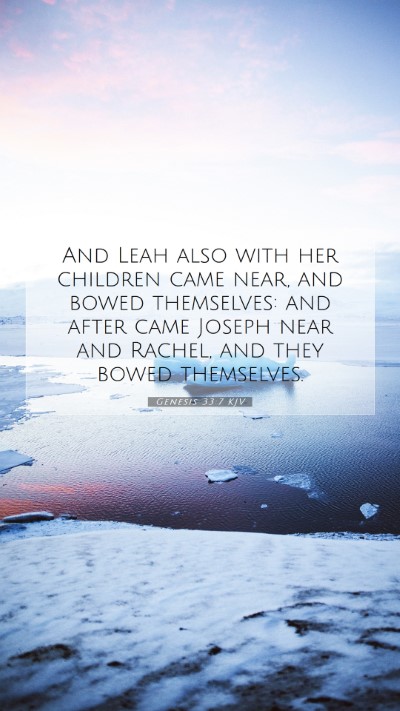Genesis 33:7 - Meaning and Interpretation
Genesis 33:7 states, "And he put the handmaids and their children foremost, and Leah and her children after, and Rachel and Joseph hindermost." This verse captures a significant moment in the narrative between Jacob and Esau, post their long-standing estrangement. Understanding this passage requires a careful examination of its context, historical background, and the dynamics of family relationships presented in the scripture.
Contextual Analysis
The context of Genesis 33 describes Jacob's return to Canaan after years of living with Laban. This return is marked by apprehension about meeting his brother Esau, whom he had deceived in the past. Jacob's actions in arranging his family reflect his concern for their safety and his desire to manage the complex dynamics of familial relationships, showing both fear and strategy.
Commentary Insights
-
Matthew Henry's Commentary:
Henry emphasizes the significance of Jacob's careful arrangement of his family. He interprets this act as a display of his protective instincts, prioritizing the vulnerable, namely the concubines and their children, in the event that Esau's welcome might not be as gracious as hoped. This arrangement speaks volumes about Jacob’s character and his evolving relationship with God and his family.
-
Albert Barnes' Notes:
Barnes notes that the sequence of the families might reflect Jacob's perception of their worth and his desire to preserve his beloved Rachel and Joseph. This indicates not only a strategy for potential conflict but also reaffirms the favoritism that marks Jacob's relationships. His placing of Rachel and Joseph at the rear signifies both a physical and emotional prioritization, which sets a tone for future familial dynamics.
-
Adam Clarke's Commentary:
Clarke expands on the symbolism of this arrangement, considering it an act of wisdom influenced by necessity. The hierarchical positioning of the family members highlights the tender relationships as well as the emotional stakes tied to Esau's reaction. Clarke notes that Jacob’s choices here reflect strategies often used in ancient Near Eastern cultures to handle familial and social tensions.
Thematic Considerations
The thematic elements of fear, protection, and favoritism presented in Genesis 33:7 resonate throughout Jacob's journey. Biblical exegesis from this verse reveals deeper insights into familial structures and conflicts:
-
Fear and Strategy:
Jacob’s fear of what Esau might do leads him to devise a plan that balances his apprehension with the need to protect those he holds dear. This fear is representative of the broader human experience when facing unresolved past conflicts.
-
Family Dynamics:
The positioning of the family reflects underlying tensions and preferences. Jacob's favoritism toward Rachel and Joseph has significant repercussions within the biblical narrative, suggesting that personal biases can lead to broader family strife.
Practical Application
In exploring the practical applications of Genesis 33:7, believers can derive lessons about handling interpersonal relationships and conflicts in their own lives. Understanding how Jacob managed his fears and the importance of prioritizing family illustrates timeless wisdom:
- Recognizing the impact of our actions on others, particularly in familial situations.
- Understanding the complexities of favoritism and its potential effects on relationships.
- Utilizing wisdom and strategy when navigating difficult interpersonal dynamics.
Related Bible Cross References
- Genesis 25:23 - The prophecy concerning Jacob and Esau.
- Genesis 32:6-8 - Jacob's fear of Esau upon returning home.
- Genesis 37:3-4 - Jacob's favoritism towards Joseph leading to family conflict.
Conclusion
Genesis 33:7 serves as a significant verse both in the overarching narrative of Jacob and Esau and in its individual lessons about family, fear, and the complexities of human emotions. Through careful scripture analysis and commentary, readers can deepen their understanding and apply these teachings to their daily lives. The lessons drawn from this verse encourage deeper reflection on family dynamics, the importance of strategic thinking in relationships, and understanding the complexities of human interactions.


